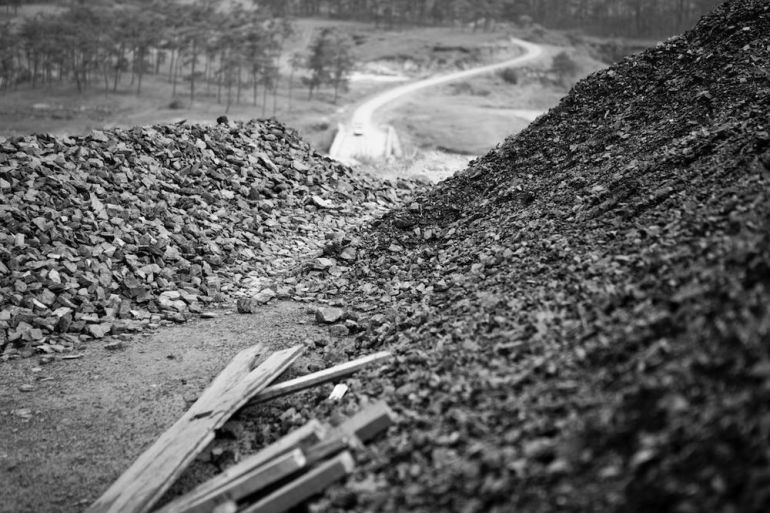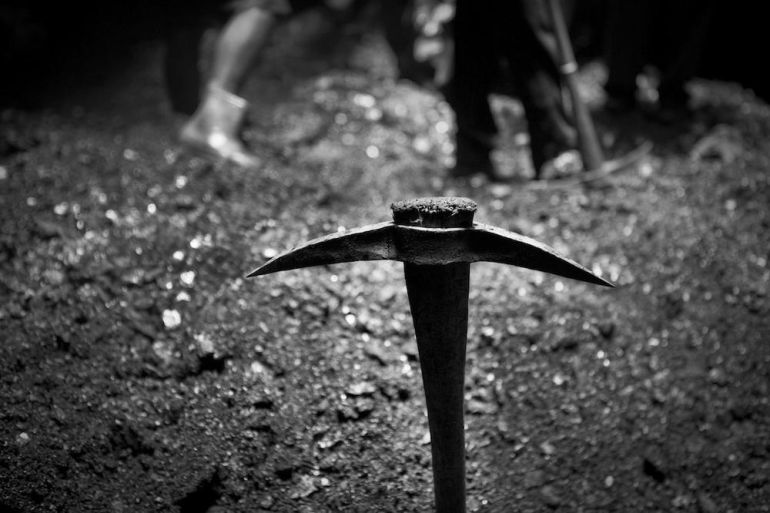In Pictures
In Pictures: India’s deadly coal pits
In Meghalaya province, miners descend deep underground often without proper safety equipment.

The coal mining industry in India is more than 200 years old. It continues to be a major driving force for internal migration and attracts labourers from Nepal and Bangladesh, particularly the coalmines in the north-eastern state of Meghalaya.
Meghalaya has total coal reserves of 576 million tones.
The private mining industry uses primitive surface method known as “rat-hole mining”. The ground vegetation is cleared and pits of five to 100 square metre are dug to reach the coal seams.
The workers climb down rickety bamboo ladders and use no safety gear. They clamour through two-feet-high tunnels clawing for coal with traditional tools.
The indigenous landowners control mining.
“Labourers from various parts of eastern and north-eastern India work in the mines. But high demand for cheap labour is attracting more migrants from Nepal and Bangladesh,” says Ram Jajodia, a labour contractor.
“Accidents are common, major ones are reported. Most are silenced or quietly buried, especially if they are illegal immigrants,” he said.
In October, Meghalaya government released a report saying, 19,000 Bangladeshi infiltrators were detected in the state in less than six years. Most of them were working in the coalmines of Jaintia hills.
“Hunger drove us from our homes. The coal industry offers so many job opportunities, all you need to do is work hard,” says Mehdi, who is from Bangladesh.
He asked only to use his first name because he has no work permit. “We just cross the border,” he said.
Five years ago, Ram Bahadur came to India along with his three brothers from western Nepal.
“It is hard labour and often there are accidents, but the money is worth it,” says Bahadur. He spends six to eight months a year working in the coal mines of Meghalaya.
“The men in our families plan to work in the mines till we are strong and healthy. Once I save enough I will no longer take the risks,” he says.
He hopes to settle in his village and maybe buy a plot of land and farm vegetables.










